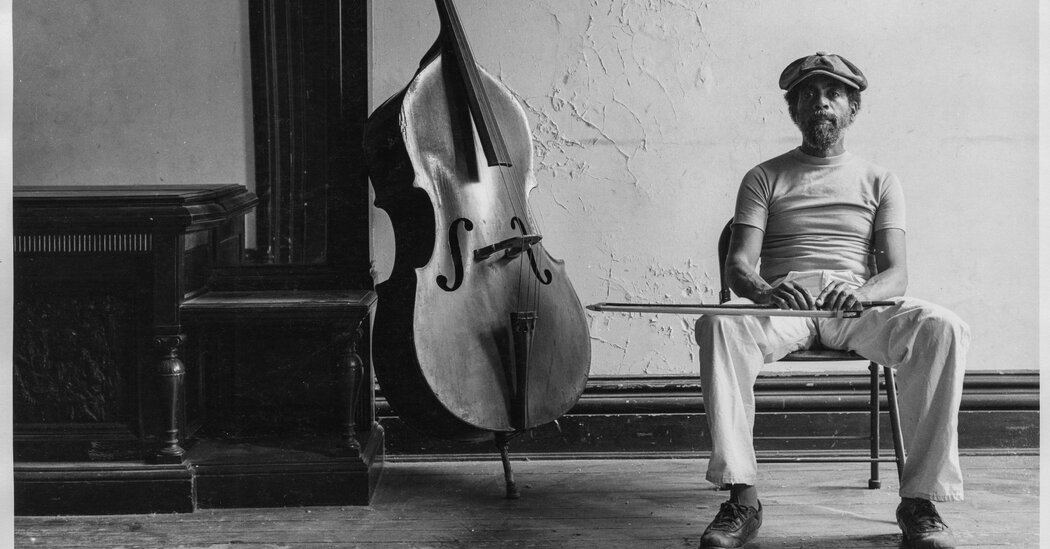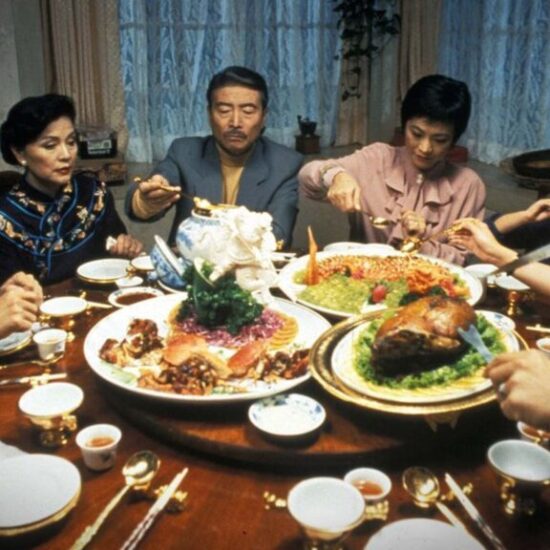
Bill Lee, a jazz bassist and composer who scored the early films of his son Spike Lee, wrote folk-jazz operas, led an acclaimed ensemble of bassists and was a prolific sideman for Bob Dylan, Aretha Franklin and others, died on Wednesday morning at his home in Brooklyn. He was 94.
Spike Lee confirmed the death.
Over six decades, in thousands of live performances and on more than 250 record albums, Mr. Lee’s mellow and ebullient string bass accompanied a pantheon of music stars, including as well Duke Ellington, Arlo Guthrie, Odetta, Simon and Garfunkel, Harry Belafonte, Ian & Sylvia, Judy Collins, Tom Paxton and Peter, Paul and Mary.
Mr. Lee wrote the soundtracks for Spike Lee’s first four feature films, a musical challenge that called for capturing the independence of a romantic Black woman in “She’s Gotta Have It” (1986), a satirical look at life at a Black college in “School Daze” (1988), racial violence in “Do the Right Thing” (1989) and the poignant hardships of a Black jazz musician in “Mo’ Better Blues” (1990).
Bill Lee had small parts in all but “Do the Right Thing,” and Spike Lee’s sister, Joie, had roles in all four. Bill Lee also scored an early Spike Lee short, “Joe’s Bed-Stuy Barbershop: We Cut Heads,” the first student film to be showcased at Lincoln Center’s New Directors/New Films Festival, in 1983.
The feature films won largely positive reviews and reaped sizable profits. Bill and Spike Lee had a falling-out in the early 1990s, over family matters, money and other issues, that ended their collaboration. Later Spike Lee films — he has directed more than 30, appearing in many of them himself — were scored by the trumpeter Terence Blanchard.
Born into an Alabama family of musicians and educators who instilled a passion for music in him and his siblings, Bill Lee learned drums, piano and flute early on. He attended segregated small-town public schools and studied music at historically Black Morehouse College in Atlanta.
Inspired in his early 20s by listening to the great jazz saxophonist Charlie Parker, Mr. Lee mastered the double bass, the largest and lowest-pitched stringed instrument, and performed with small jazz groups in Atlanta and Chicago before migrating to New York City in 1959.
Over the next decade, Mr. Lee, who favored a battered straw hat and often recited his own poetry between numbers, performed often in piano-bass duos and piano-bass-drums trios in smoky clubs that served soul food with jazz, many on the western edge of Greenwich Village, squeezed among meatpacking houses and trucking depots on Manhattan’s Hudson River shoreline.
He recorded extensively on Strata-East Records, a musician-owned label, and founded and directed the New York Bass Violin Choir, a troupe of seven basses, sometimes accompanied by piano or saxophone. Critics lauded the ensemble for weaving an agile harmony of pastel and harsh moods in performing Mr. Lee’s folk operas at Town Hall, Alice Tully Hall at Lincoln Center and the Newport Jazz Festival.
His numerous operas, including “One Mile East,” “The Depot” and “Baby Sweets,” were based on people and events from his early life in the South. They sometimes drew on the singing talents of Mr. Lee and his two sisters, Consuela Lee Moorehead, a jazz pianist and music teacher at Hampton University in Virginia, and Grace Lee Mims, a librarian, whose voices lent grandiloquent color to the tales.
In a review of a performance by the Violin Choir at the Newport Jazz Festival in 1971, John S. Wilson of The New York Times wrote: “Mr. Lee served as bassist, singer and narrator of his sketches of small-town life in Snow Hill, Ala., building both his stories and his music from a rich vein of folk sources. His team of bassists, bending over their unwieldy instruments, produced ensemble passages that were by turns gorgeously warm and singing or so surprisingly light and airy that one suspected a couple of flutes might be hiding among them.”
In the 1970s, when the electric bass became an instrument of choice in many jazz ensembles because its thumping tones suited the commercial sounds of jazz-rock fusion, Mr. Lee, an acoustic bass purist, refused to go along and lost work as a result. “Some things you just can’t live with,” he told The Boston Globe in 1992. “Just thinking about doing it, my gut reaction hit me so hard in the stomach. I knew I could never live with myself.”
Spike Lee explored the problem of commercialism, with its racial implications, in “Mo’ Better Blues,” which starred Denzel Washington as a jazz trumpeter who fights exploitation by white club owners.
“Musicians are low-priced slaves, whereas athletes and entertainers are high-priced slaves,” Spike Lee told The Times when the film opened. “It’s their music, but it’s not their nightclub, it’s not their record company. They have an understanding only of the music, not of the business, so they get treated any old way.”
Despite other differences, Bill and Spike Lee agreed about integrity. “Everything I know about jazz I got from my father,” Spike Lee told The Times in 1990. “I saw his integrity, how he was not going to play just any kind of music, no matter how much money he could make.”
William James Edwards Lee was born in Snow Hill on July 23, 1928, to Arnold Lee, a cornet player and band director at Florida A&M University, and Alberta Grace (Edwards) Lee, a classical concert pianist and teacher. In addition to his sisters Consuela and Grace, he had four other siblings, Clifton, Arnold Jr., Leonard and Clarence.
Their maternal grandfather, William J. Edwards, a graduate of Booker T. Washington’s Tuskegee Institute, founded a log-cabin arts school for Black students in Snow Hill in 1893. By 1918, the Snow Hill Normal and Industrial Institute had 24 buildings and 300 to 400 students pursuing academic subjects and vocational training. Mr. Edwards died a few years later, but the institute survived as a segregated public school until 1973, when it closed. Bill Lee graduated from there in the mid-1940s.
Mr. Lee and his first wife, Jacquelyn (Shelton) Lee, an art teacher, had five children: Shelton (Spike), Christopher, David, Joie and Cinque. After Jacquelyn’s death in 1976, Mr. Lee married Susan Kaplan. They had one son, Arnold. Christopher died in 2013. Mr. Lee’s sister Consuela died at 83 in 2009.
In addition to Spike Lee, he is survived by his wife; his sons David, Cinque and Arnold; his daughter, Joie; a brother, A. Clifton Lee; and two grandchildren.
After arriving in New York, Mr. Lee settled in Fort Greene, a Brooklyn neighborhood that became a magnet for Black musicians and other creative artists who took pride in their lifestyles and their art. The neighborhood was the setting for “She’s Gotta Have It.”
The Lee household, overlooking Fort Greene Park, all but banished television but was awash in music, often with jam sessions that went late into the night, prompting noise complaints from neighbors but spawning jazz artists who found their sounds in the heart of Brooklyn.
During a 2008 interview with The Times at his home, Mr. Lee played piano and double bass. “His music has the complex harmonies of bebop and hard bop, but it also has a sincere, down-home, churchy feel,” the reporter Corey Kilgannon wrote. “His passages move in interesting and unexpected places, but they resolve before long in a way that is simple and sincere, earthy and somehow very satisfying.”













